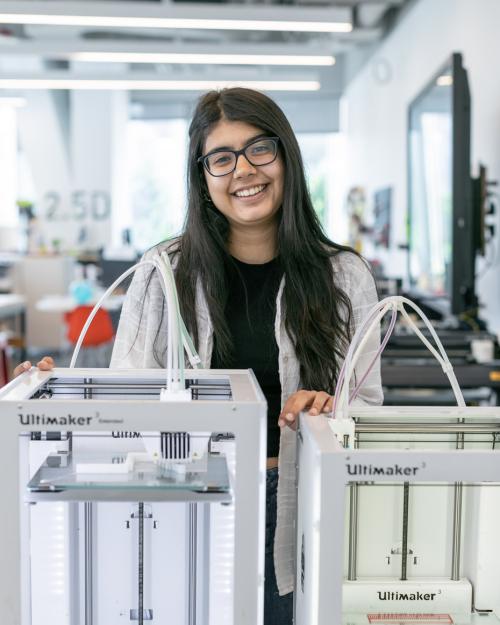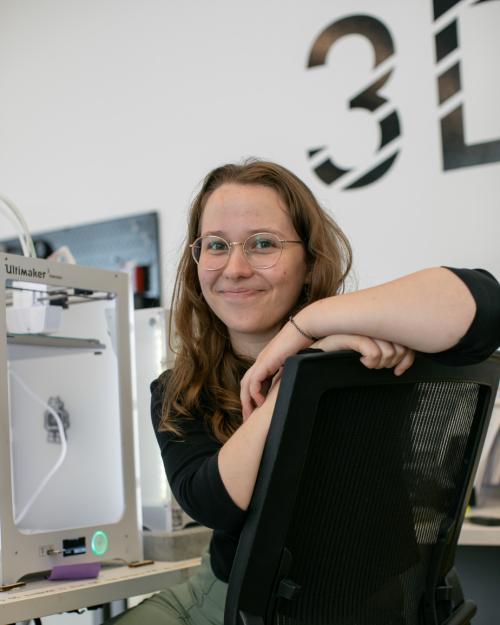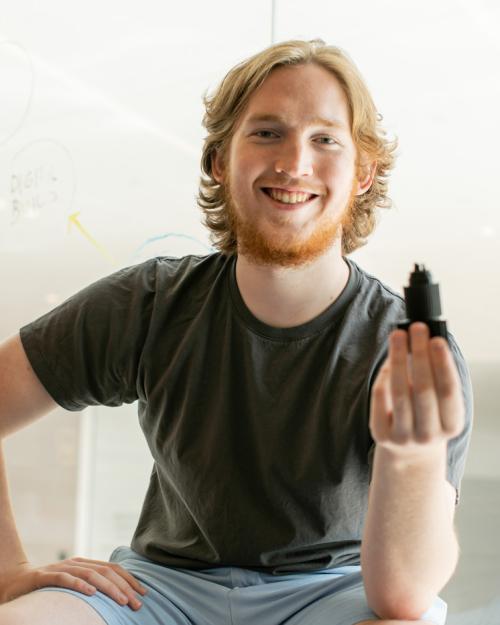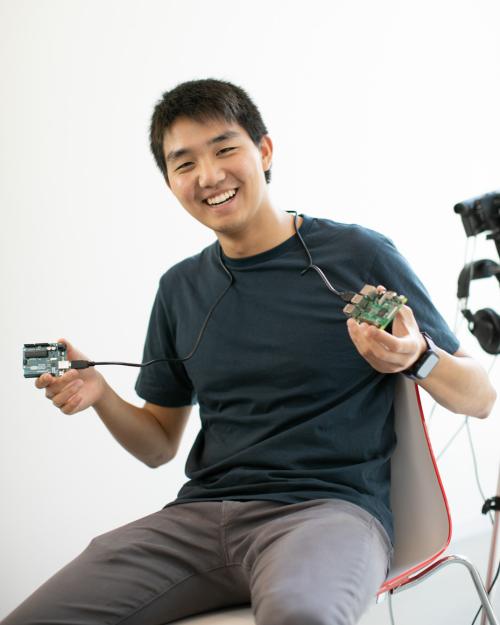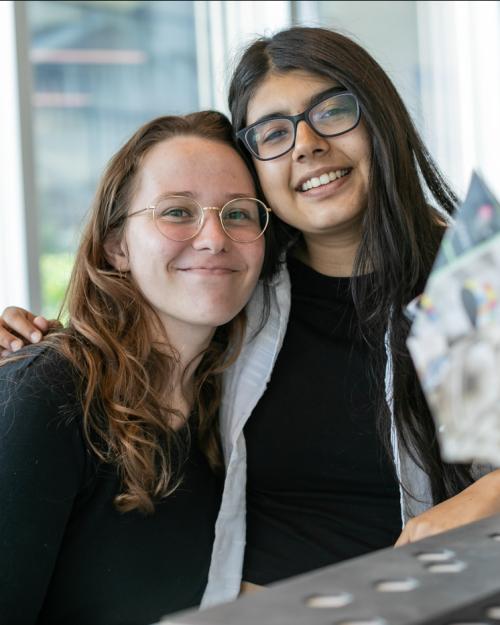We spent some time talking in depth with four of the 29 students in the Milstein Program in Technology & Humanity during their eight-week immersion at Cornell Tech in New York City this summer. Here are some of the thoughts from:
- Carlton Cassedy ’24, computer science
- Zayana Khan ’25, computer science major
- James Koga ’25, computer science and science and technology studies major
- Elida Met-Hoxha ’24, mathematics major with a concentration in physics
Why did you want to be part of the Milstein program?
Carlton: I've always been someone who has intellectual interests in the humanities and in STEM. I like using computers, I like programming, I like solving problems. As much as I enjoy doing computer science, I want to use the technology right. To solve big problems such as climate change. In the past couple of years, I’ve also spent quite a lot of time thinking about politics and ways of organizing society, how governments should operate. I am interested in the possibilities that computers and AI could bring to the table as far as making things more efficient.
Zayana: In high school in India during the pandemic, my friend and I started this online community, Voices Between Pages, to help people read books and talk about books online. It exploded and we had people all around the world. That combined my love of literature and technology, so I talked about it for my Milstein video. My fascination with technology is actually applying it into places and a lot of times that ends up being with the humanities.
Talk a bit about the Roosevelt Island community project you worked on?
James: After brainstorming with Coler Hospital, we’re creating a 3D digital museum that you can actually walk through on the computer. (The artwork was created by patients at the hospital and long-term care facility.) People will be able to use their mouse to navigate the space and we'll implement something where you can click on a painting and then it'll enlarge and then you can hear the artist's name and there will be a little description. I think the story that contextualizes the artwork is just as powerful as the artwork itself. They’ll have 20 pieces of art there and can switch them out.
Elida: I’m working on the FloodNet Project, where we’ll have some sort of augmented reality experience that shows people how the sensor works and that it’s not taking videos or pictures, just collecting numerical data. Your personal information is safe. We want to do a QR code that people would scan to get to a website, but there’s a problem with accessibility. You want anyone to be able to access it, not just someone who has technology. There's also the problem of language accessibility. In New York City, you have so many languages. There are a lot of interesting things to think about with this project, things that we don’t a lot of times consider.
What were some of the highlights of the summer program at Cornell Tech for you?
James: One of the best things about the Millstein space is that they actually provide you with the 3D printer, the materials and the help, with the printer or the Arduino board, or with Blender, which is an architectural modeling software I'm using for the art website. If you need help, all of our instructors know how to help and they're really accessible. I’m finding a lot of common themes in all of the work I’m doing this summer. It's like my two worlds are sort of colliding here.
Zayana: Since we have eight weeks in the city, it feels like you're really living here. We got to see like the non-tourist parts of the city, but we've also been to a Broadway show, which was mind blowing. And we’ve seen the ballet, Swan Lake. Absolutely beautiful. We've had a lot of really nice experiences in the city, which gives you an idea about like what life in the city would be like.
How did the TechXplorations events at Company Ventures impact you?
Carlton: I've sort of been on the edge of the startup world, but I'm hearing more and more about that from these various tech explorations events that we've had. I'm not particularly enthralled by the idea of taking my computer science education and going to work at some big firm. I want something that's a little more dynamic or active, a little more frenzied, I guess. The culture of the startup world sort of appeals to me.
Elida: They asked us “how many of you want to have your own startup at some point?” And everyone except for three people raised their hands. I was one of those three people. I don't see that happening, but it is interesting to be exposed to a different type of reality in what those people do. I want to have the mindset that every idea is possible, that’s something I strive to have. And while I would not characterize myself as risk-averse, I do understand that many things like that can depend on circumstance.
What will you take from this experience back to campus with you in the fall?
James: This summer really cemented us as a good community of friends. I didn't even know anybody coming into this, but I feel pretty comfortable with everybody now. I think just living together allows that to happen, over board game nights or cooking nights or barbecues. Being a part of an inspiring cohort, at least for me, has inspired me to do all of sorts of things.
Zayana: In any project you're trying to work with, design thinking is probably going to help you just because you're going to come up with 100 different ideas and then you're going to narrow them down from there. I just don't think of it as a buzzword anymore, I know what it means.
